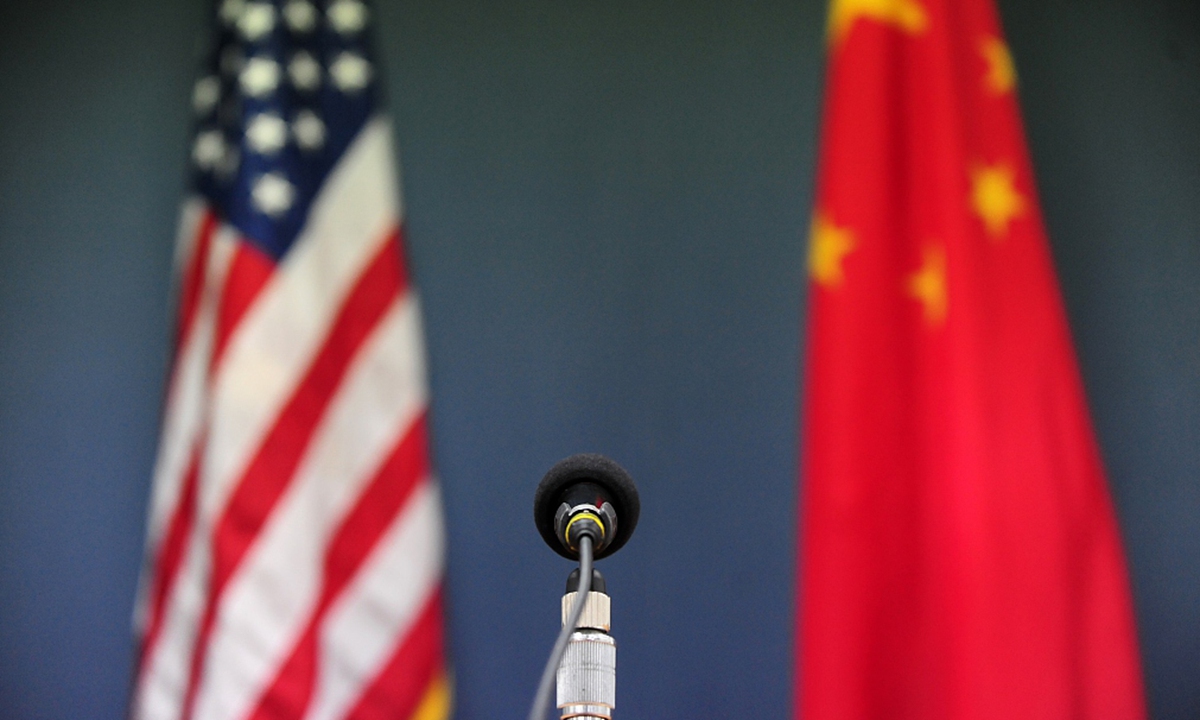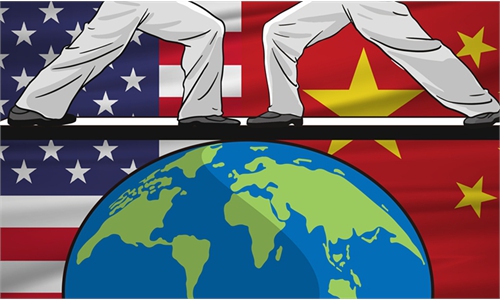
China and the US Photo:VCG
US Trade Representative Katherine Tai said on Wednesday that she expects to meet her Chinese counterpart "in the near term" for conversations that will influence the trajectory of bilateral trade ties.
"A lot of this is going to hinge on the conversations that we have with China, and our assessment of the effectiveness of the US-China trade and economic agreement," Tai told a Financial Times online event.
It marked the first time that the Biden administration signaled intention to hold talks with China addressing bilateral trade issues. Just a few weeks ago, the top US trade envoy still appeared to be in no hurry and have no schedule to start high-level trade talks between China and the US. No matter what has caused the change of her attitude, whether it's the US economic pressure or the lobbying efforts from the business community, this is a positive sign against the backdrop of the current trade tensions between the world's two largest economies.
In response, a spokesperson for the Chinese Foreign Ministry on Thursday reiterated that both countries should properly address problems occurred in bilateral economic and trade relationship in the spirit of mutual respect and consultation on an equal footing.
High-level trade talks have been stuck in months of lockout between the world's two largest economies and trading powers amid their growing strategic rivalry. In this context, a direct dialogue seems necessary to map out a clearer path for the future bilateral economic ties as there are too many issues to be discussed between China and the US when it comes to the mess left by Trump administration regarding China-US trade ties, including the implementation of the phase one trade agreement, the US tariffs on $370 billion worth of Chinese imports, and the US sanction measures on Chinese companies.
While the Biden administration has been emphasizing a top-to-bottom review of its trade policy with China that will help determine how bilateral trade ties will fare, the current environment is not very optimistic for the economic and trade relationship between the two countries.
During the first 100 days since Biden took office, his administration inherited nearly all of Trump's economic suppression measures on China and Chinese companies, with Trump's tariff policy and US sanctions on Chinese high-tech companies still in place. Given the fact that the so-called competition with China has become a key focus of the Biden administration as reflected by the president's speech delivered on his 100th day in office, it would be almost impossible to expect a major reverse of Biden's China policy in terms of either political or trade issues.
Meanwhile, China is fully aware that US political elites have now taken it as a target, with the aim of containing its development. In this context, a single round of dialogue or meetings will certainly do little to solve the lingering trade issues between the two countries.
But still China's attitude toward talks has been consistently firm: the doors will always be open for improving ties. In any case, only through talks can there be an opportunity to ease trade tensions for both sides, which should be cherished and welcome.
Fundamentally speaking, China's long-standing position that the US side needs to take concrete measures to roll back tariffs and other economic sanctions to mitigate trade frictions won't change. If high-level trade talks do take place in the near future, China will firmly reiterate its position on the trade front, and the US should not indulge in its own trade grudges in such a scenario.



